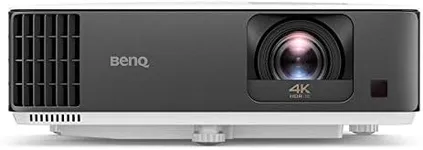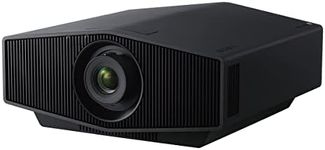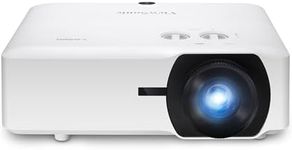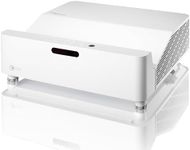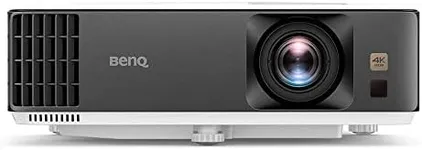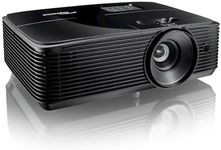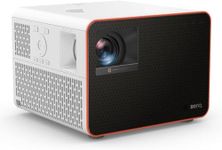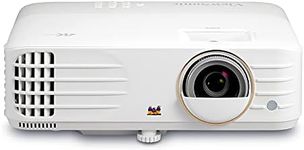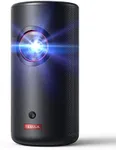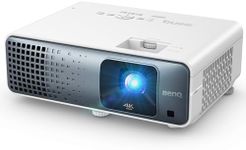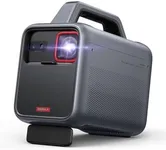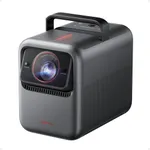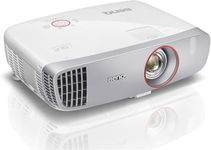Buying Guide for the Best Gaming Projectors
Choosing a gaming projector is all about finding the right balance between image quality, responsiveness, and features that suit your gaming style and environment. Unlike regular projectors, gaming projectors need to handle fast-moving visuals with minimal delay, while also providing a bright and clear image. Think about where you'll use the projector, how big you want the image to be, and what types of games you play most often. Understanding the key specifications will help you make a choice that enhances your gaming experience.Input LagInput lag is the delay between pressing a button on your controller and seeing the action happen on screen. This is especially important for gaming, as high input lag can make games feel sluggish and unresponsive. Input lag is measured in milliseconds (ms). For fast-paced or competitive games, look for projectors with input lag under 20ms, which will feel very responsive. For casual or slower-paced games, input lag up to 40ms may still be acceptable. If you play a lot of action, sports, or shooter games, prioritize low input lag to keep your gameplay smooth and accurate.
Refresh RateRefresh rate is how many times per second the projector updates the image, measured in Hertz (Hz). A higher refresh rate means smoother motion, which is great for fast-moving games. Most projectors offer 60Hz, which is fine for many games, but some gaming projectors support 120Hz or even higher. If you play a lot of fast-paced or competitive games, a higher refresh rate can make the action look smoother and more lifelike. For slower games or cinematic experiences, 60Hz is usually enough.
ResolutionResolution refers to the number of pixels that make up the image, such as 1080p (Full HD) or 4K (Ultra HD). Higher resolution means a sharper and more detailed picture, which is especially noticeable on large screens. If you want crisp visuals and play games with detailed graphics, a higher resolution is better. For smaller screens or if you sit farther away, 1080p may be enough, but for a truly immersive experience or very large projections, 4K is ideal.
Brightness (Lumens)Brightness, measured in lumens, tells you how well the projector can display a clear image in different lighting conditions. Higher lumens mean a brighter image, which is important if you play in rooms with some ambient light. For dark rooms, 1500-2000 lumens may be enough, but for rooms with windows or lights on, look for 2500 lumens or more. Think about where you'll use the projector most often and choose a brightness level that matches your environment.
Contrast RatioContrast ratio is the difference between the darkest black and the brightest white the projector can display. A higher contrast ratio means deeper blacks and more vibrant colors, which makes games look more dynamic and immersive. If you play games with lots of dark scenes or want a more cinematic experience, a higher contrast ratio is better. For bright, colorful games or well-lit rooms, contrast ratio is less critical but still adds to the overall image quality.
Throw Distance and Screen SizeThrow distance is how far the projector needs to be from the screen to create a certain image size. Some projectors are 'short throw' and can create a big image from close up, while others need to be farther away. Think about your room size and where you can place the projector. If you have limited space, a short throw projector is more flexible. Also, consider the maximum screen size the projector can handle, especially if you want a large, immersive gaming display.
ConnectivityConnectivity refers to the types of inputs and outputs the projector has, such as HDMI, USB, or audio ports. Make sure the projector has enough HDMI ports for your gaming consoles or PC, and check for features like HDMI 2.1 if you want to use the latest gaming hardware. If you use external speakers or headphones, look for audio output options. Wireless connectivity can also be useful for streaming or connecting devices without cables.
Built-in AudioSome projectors have built-in speakers, but their quality can vary. If you want simple setup and don't need powerful sound, built-in audio may be enough. However, for a more immersive experience, especially in larger rooms, you might want to connect external speakers or a sound system. Think about your audio needs and whether you'll rely on the projector's speakers or use your own.
